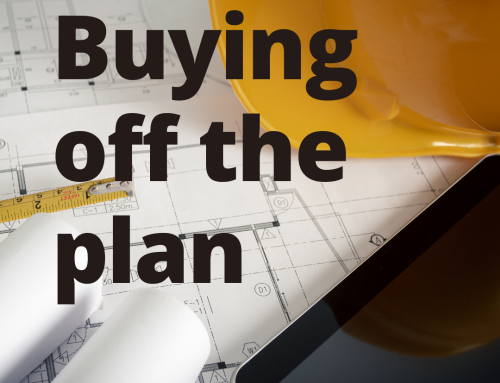Are you in the market for a new car?
 If you are, you’ve probably been shopping for the make and model you want already! But what about your car financing? There are quite a few car finance options available that most people don’t know about. Talking to us could help you find a new way to finance your car purchase that saves you money. One thing is for sure, you don’t want to jump straight in with the finance a car dealership offers without checking out your other options first! This article tells you more about the car finance options we can provide.
If you are, you’ve probably been shopping for the make and model you want already! But what about your car financing? There are quite a few car finance options available that most people don’t know about. Talking to us could help you find a new way to finance your car purchase that saves you money. One thing is for sure, you don’t want to jump straight in with the finance a car dealership offers without checking out your other options first! This article tells you more about the car finance options we can provide.
Why you should check out all your options first
When you buy a home, your home loan is considered a “good” form of debt because you are purchasing an asset that is most likely appreciating and making you wealthier. But when you purchase a car, you are purchasing an asset that is depreciating and this is considered “bad” because it is costing you money – so it is really important to minimise your borrowing and the amount of interest you have pay. Here’s some car financing options that could help you to do just that!
Option 1 – get a car loan
A car loan is a straight forward option that’s great for most people. With a car loan, the funds are secured against the car and you can usually pay it down at about the same rate that the car depreciates at. You can get flexible contract terms ranging from two to seven years, and a choice of fixed or variable interest rates. You may also get to trade-in your old car or use a deposit, which can considerably reduce your monthly repayment amount.
Because the loan is secured against the car itself, you can usually get a lower interest rate compared to other borrowing options like a personal loan for example. We don’t usually recommend a personal loan to buy a car, because next to credit cards, they carry the highest interest rates of any type of loan available in Australia because they are unsecured debt.
Option 2 – take out a lease
A lease differs to a car loan in that the lender retains actual ownership of the car. They purchase the car on your behalf and you lease it back from them, paying a fixed monthly rental for the term of the lease. At the end of the lease, you can pay a “residual value” final payment and take ownership of the car, trade it in, or if the residual is larger than a payment, refinance the residual and continue leasing.
The benefit of this method of buying a car is that you can reduce the size of your payments by increasing the residual amount you have to pay at the end. Plus, you know what your payments will be in advance. Leasing may also allow you to get a better car than you may otherwise be able to afford.
Additionally, the GST that is usually contained in the car’s purchase price is claimed back by the lender, which reduces the purchase price for you, and could further reduce your payments.
A lease also has some tax benefits if you are self-employed or a business owner, particularly if you usually use the car for business purposes. You can even make advance lease payments for tax deduction or cash-flow purposes. (Check with your accountant to ensure this applies to you).
If you are a salaried employee of a company, you can also enjoy some tax relief by using a novated lease. In this kind of lease, your employer pays the lease payments from your pre-tax income. You can take the vehicle and lease with you if you switch employers and you always retain the equity you build up in the vehicle, not the employer. (Again, you should check with your accountant to ensure a novated lease will give you a tax benefit.)
Option 3 – use the equity in your home
If you own your home, you could consider refinancing your home loan to use some of your equity to pay cash for a car. Having cash in your hand when you go out to purchase a car could help you to negotiate a better price, which could save a great deal of money.
You may think that using the equity in your home to buy a car is a good idea if your home has substantially increased in value since you purchased it. However, you need to be aware that if you take some equity out of your home loan, your home loan repayments will increase. Whilst this is unlikely to increase the cost of your home loan repayments more than covering the monthly repayments on a car loan in addition to your home loan, you need to consider that you will be paying the home loan for an extended period of time. It could be as much as 30 years, which may end up costing you a lot more in interest and repayments than a regular car loan over five years, for example.
Option 4 – a chattel mortgage
Many people have never heard of a chattel mortgage and that’s probably because it’s usually used by businesses. If you have a company, business partnership or are a sole trader, you can use a chattel mortgage to buy a vehicle provided it is primarily used for business purposes.
A chattel mortgage is great if you use the cash method of accounting in your business, as it allows you to claim the GST in the vehicle’s price up-front. That means you can claim some or all of the GST charged in the purchase price of the car as soon as you lodge your next BAS, rather than over the term of the loan. You may also be able to claim the interest charges on your chattel mortgage as a tax deduction and also depreciation on the car. (Of course, you’ll need to check with your accountant first.)
With a chattel mortgage, the lender advances funds to purchase a car and you take ownership. Then the lender takes out a “mortgage” using the car as security for the loan. This mortgage is registered with ASIC and once the contract is completed, it is removed giving you ownership of the car. You can finance the chattel mortgage over two to five years, arrange for a residual value to reduce the cost of your payments, and use a trade-in or cash as a deposit to further reduce your payments.
Contact us
If you’re planning on buying a car, it pays to talk with us about which option will be most beneficial to you. Car dealerships can only provide one kind of finance and they don’t have an obligation to take your personal financial circumstances into consideration and recommend what’s right for you. If you’ve been shopping for a new car of late, just give us a call on 0437 498 800. We’ll be happy to talk you through all of the car financing options available for you.





